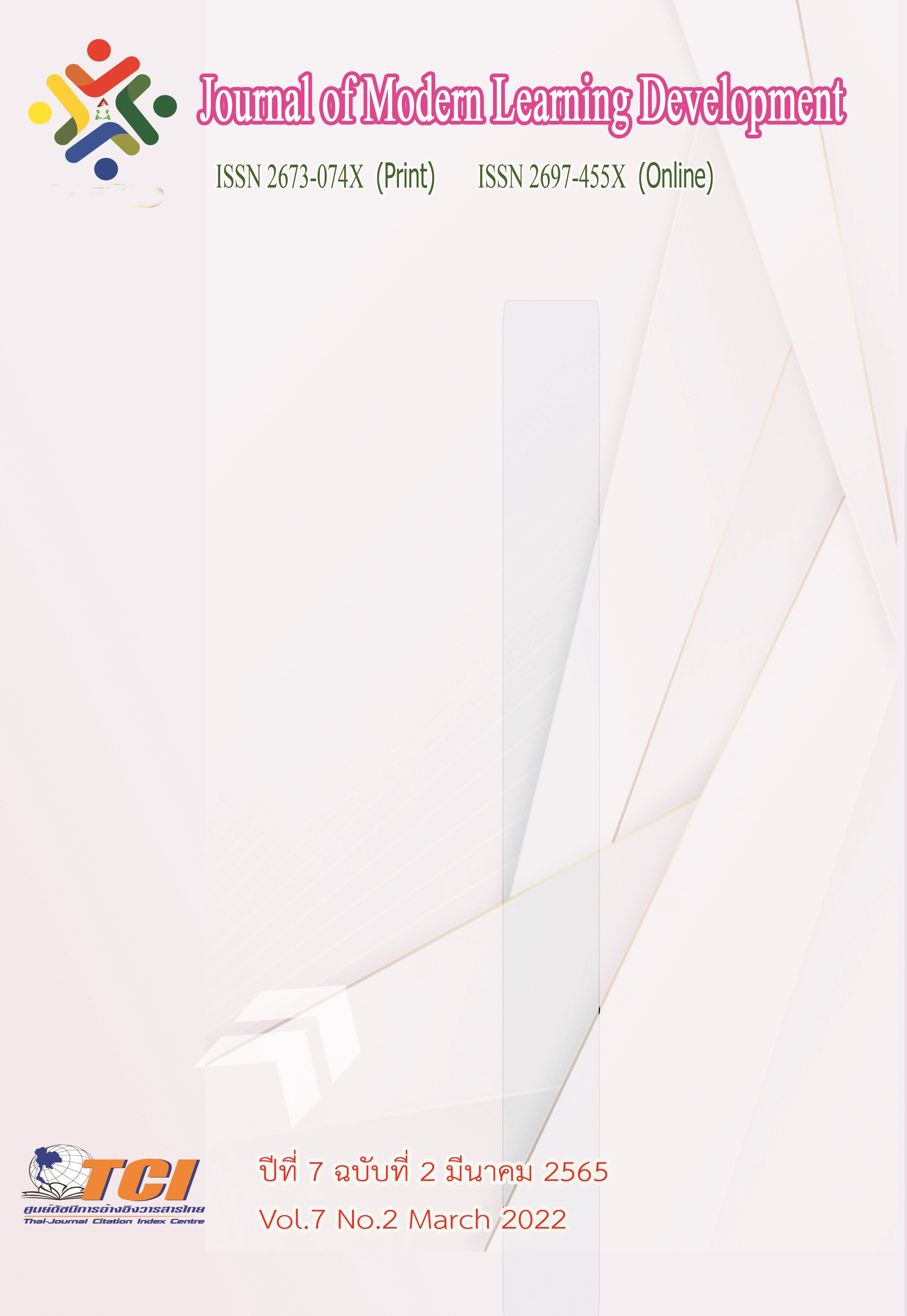Strategies for Developing a Management Model of Electricity Generation Using Solar Rooftops by Entrepreneurs and Household users in Khan Na Yao District, Bangkok
Main Article Content
Abstract
This article aims to 1) investigate the management of electricity generation using solar rooftops and the management expired solar panels affecting operators and household users in Khan Na Yao district, Bangkok, and 2) to create the strategies for developing a management model of electricity generation using solar rooftops by entrepreneurs and household users in Khan Na Yao district, Bangkok. The study was conducted by interviewing 203 and 197 household solar energy users from Ramintra and Khan Na Yao subdistricts, respectively. The group interview was performed using operators and those who involved in the management of solar rooftop power generation in Khan Na Yao district, Bangkok. The data obtained were analyzed using stepwise multiple regression analysis at a significance level of 0.05. The results were employed to create the strategies for developing a management model of electricity generation using solar rooftops by entrepreneurs and household users in Khan Na Yao district and to organize brainstorming to improve the strategies.
The results demonstrated that: 1) the management model of electricity generation using solar rooftops comprised the contexts of the problems encountered: hacking, costs, unlicensed contractors, lack of knowledge of users, building structures, using difficult words in marketing, and power generation planning. Prediction of expired scraps or expired solar cells, installation of production system, speed of execution, and acceptance of perceived future benefits were positively correlated with the management model of solar rooftop power generation. 2) strategies for developing the management model of electricity generation using solar rooftops by entrepreneurs and household users consisted of 3 strategies. Strategy 1 is understanding of solar rooftop. Strategy 2 is using solar rooftop. Finally, strategy 3 is managing expired solar cells
Article Details
References
การเคหะแห่งชาติ. (2562). ข้อมูลประชากรปี 2562. กรุงเทพมหานคร: การเคหะแห่งชาติ.
กรมเชื้อเพลิงธรรมชาติ. (2562). เปิดแผน 5 ปี กกพ.ใช้งบ 5 พันล้าน เน้นกำกับให้มีประสิทธิภาพพัฒนาพลังงานหมุนเวียน. ออนไลน์. สืบค้นเมื่อ 20 พฤษภาคม 2563. แหล่งที่มา: https://dmf.go.th/public
/list/data/detail/id/14143/menu/593.
กรมพัฒนาพลังงานทดแทนและอนุรักษ์พลังงาน กระทรวงพลังงาน. (2559). แผนพลังงานทดแทน (AEDP
-2579). ออนไลน์. สืบค้นเมื่อ 11 พฤษภาคม 2563. แหล่งที่มา: http://www.iie.or.th /iie2016/images/postdoc/files/3pdf.
รพีพัฒน์ สุทธิวงศ์. (2560). นโยบายพลังงานทดแทนเพื่อความมั่นคงของชาติ. กรุงเทพมหานคร: วิทยาลัยป้องกันราชอาณาจักร
สุมิตรา ศรีชูชาติ. (2550). สถิติธุรกิจ. เชียงใหม่: มหาวิทยาลัยราชภัฏเชียงใหม่.
สำนักผังเมือง. (2564). ผังเมืองรวมกรุงเทพมหานคร. ออนไลน์. สืบค้นเมื่อ 6 พฤษภาคม 2563. แหล่งที่มา: http://cmc.bangkok.go.th/bmaitev/web/index.php.
สํานักงานพัฒนาวิทยาศาสตร์และเทคโนโลยีแห่งชาติ. (2562). สมุดปกขาว การศึกษาเชิงนโยบายการจัดตั้งศูนย์เทคโนโลยีพลังงานแห่งชาติ. ปทุมธานี: สํานักงานพัฒนาวิทยาศาสตร์และเทคโนโลยีแห่งชาติ.
อธิโชค วินทกร. (2555). การพัฒนารูปแบบการจัดการความรู้ของธุรกิจบำรุงรักษารถยนต์. ปรัชญาดุษฎีนิพนธ์ (การพัฒนาทรัพยากรมนุษย์). บัณฑิตวิทยาลัย: มหาวิทยาลัยรามคำแหง.
Gustafsson, A.M., Foreman, M.R., Ekberg C. (2014). Recycling of High Purity Selenium From CIGSSolar Cell Waste Materials. Waste Managment. 34 (10), 1175-1182.
Martensson, C.and Skoglund, M. (2014). Solar Landfills a Study of the Concept in a Swedish Setting. Master’s thesis in Energy and Environmental Engineering the Department of Management and Engineering the Division of Energy Systems.
McDonald, N.C. and Pearce, J.M. (2010). Producer responsibility and Recycling Solar Photovoltaic Modules. Energy Policy. 38 (11), 7041-7047.
Pramod Ranjan Arora. (2013). Right Time to Reap Benefits from Residential Solar Rooftop PV in India - A Venture of Millions. International Journal of Scientific and Research Publications. 3 (8), 1-7.
US EPA. (2013). Renewable energy/ state and local/ US EPA. Online. Retrieved May 4, 2020. From : http://www.epa.gov/statelocalclimate/state/topics/renewable.html.


